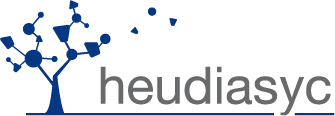Sidebar
Towards Collaborative Integrity for improved autonomy of a multi-robot system
ANR JCJC project contact: Joelle Al Hage: joelle.al-hage[at]hds.utc.fr
Duration: March 2022-February 2026
Summary
The context of this project is the navigation of autonomous multi-robot systems. These are robots that can localize themselves in their environment, perceive it, interpret it without any human interaction, interact with other robots by exchanging relevant information and that make safe decisions to achieve their mission. However, so far there is no solution able to operate autonomously in different environments without human intervention. The integrity problem leading to the safety of mobile robots hinders their deployment. The notion of integrity is very important when autonomous navigation presents high safety risks where the probability of accident should be reduced as much as possible as in the case of autonomous vehicles. To do so, navigation requires an accurate and consistent estimation of the pose with reliable inputs of the perception system. However, dealing with this problem from a single robot perspective requires increased redundancy of high cost sensors at each perception and decision level. Hence, collaboration between robots appears to be an interesting approach that can lead to an accurate and high integrity solution thanks to the numerous and redundant information that can be shared . Indeed, this natural redundancy improves internal integrity (fault tolerance) and external integrity (confidence) of the information. The goal of this project is to contribute to the definition of new state estimation methods that overcome simplified assumptions in order to improve the accuracy and the consistency of the estimation output. The contribution of parameter learning strategy (covariance matrix, degrees of freedom, fault detection threshold, fault amplitude) to model-based methods will be investigated in terms of accuracy and integrity. One of our goals is that the learning approach can deal with a partial ground truth. On the other hand, we want to take advantage of the collaborative framework to improve the accuracy and reduce the uncertainty in the overall system. The integrity of the exchanged information in the system is also an important topic to address.
Objectives
The final objective of ToICar consists in achieving a safe autonomous multi-robot system from the integrity perspective.
The end-results of the project will be the development of methods that will meet two distinct needs:
- Offer the possibility to give an accurate and consistent estimation output by exploring the contribution of Artificial Intelligence (AI) to model-based methods and by overcoming simplified assumptions.
- Propose an efficient approach that takes advantage of robot collaboration to deal with sensors faults and to reduce the uncertainty in the overall system.







